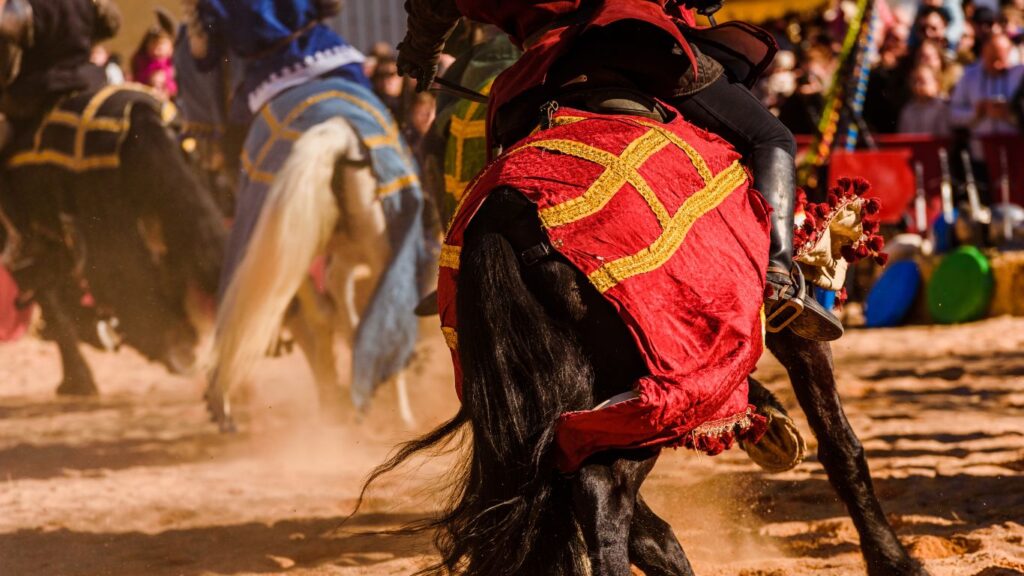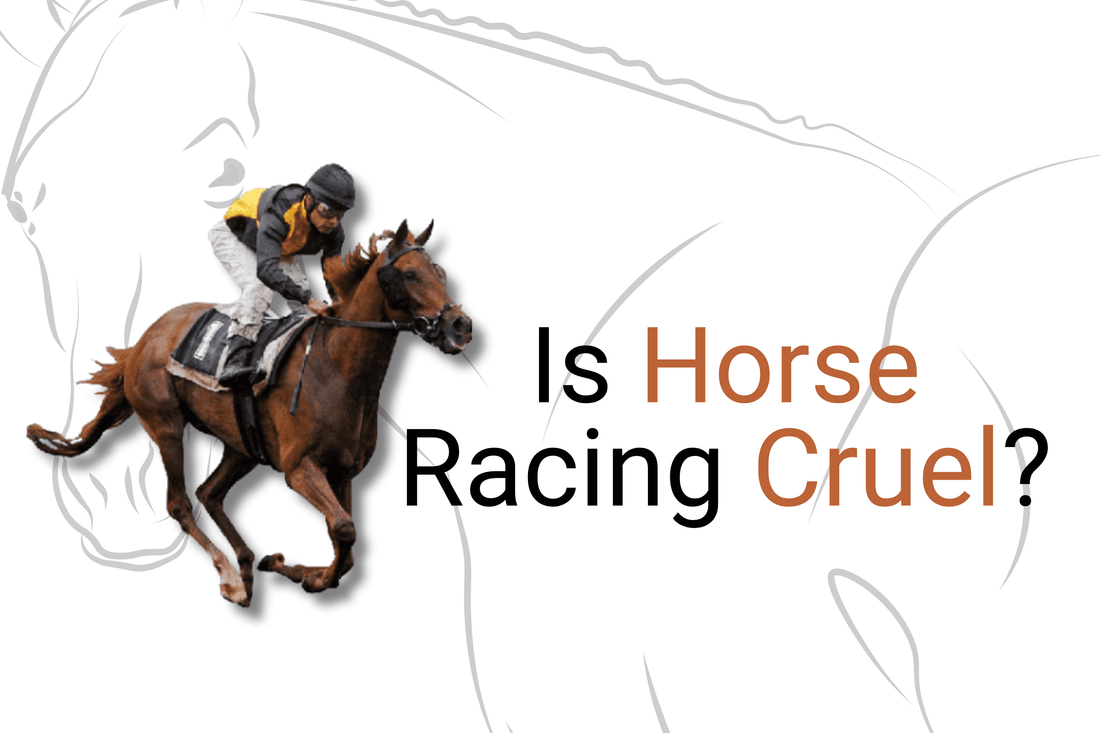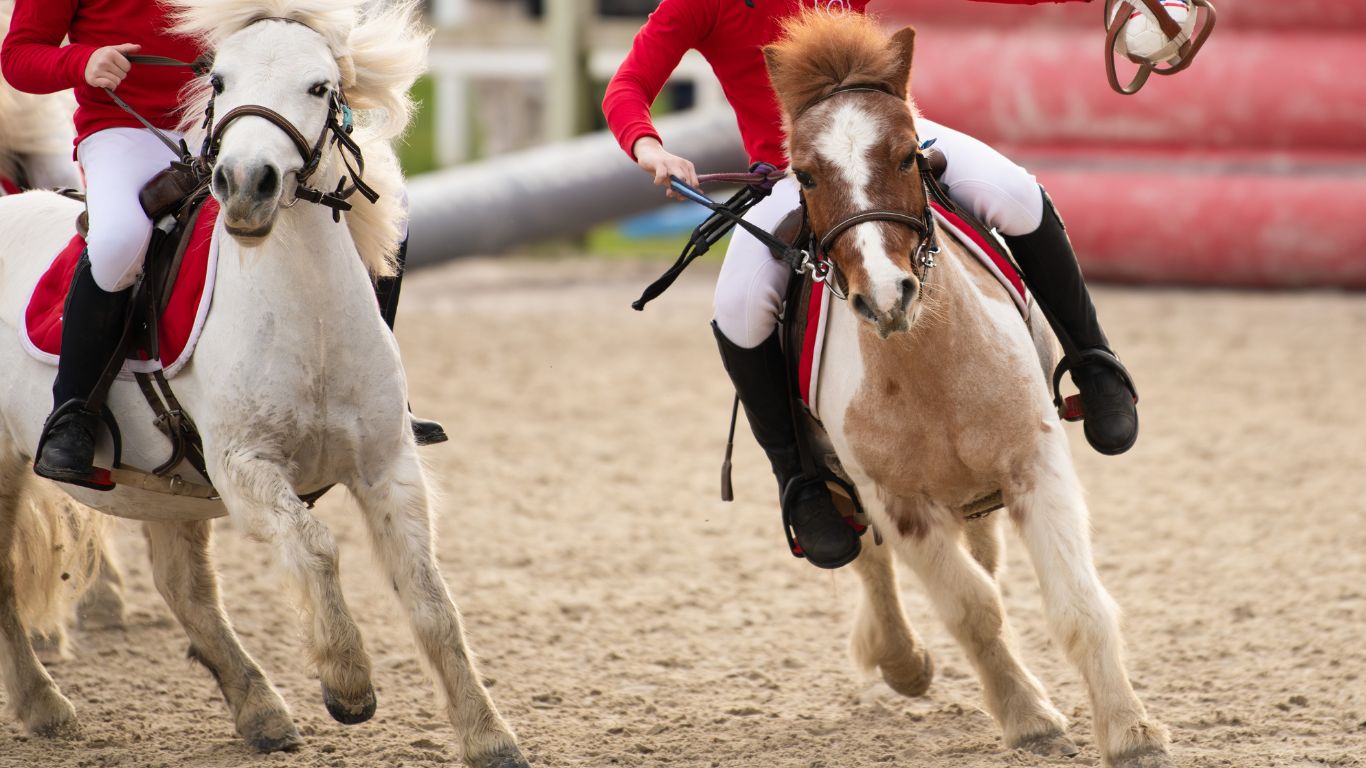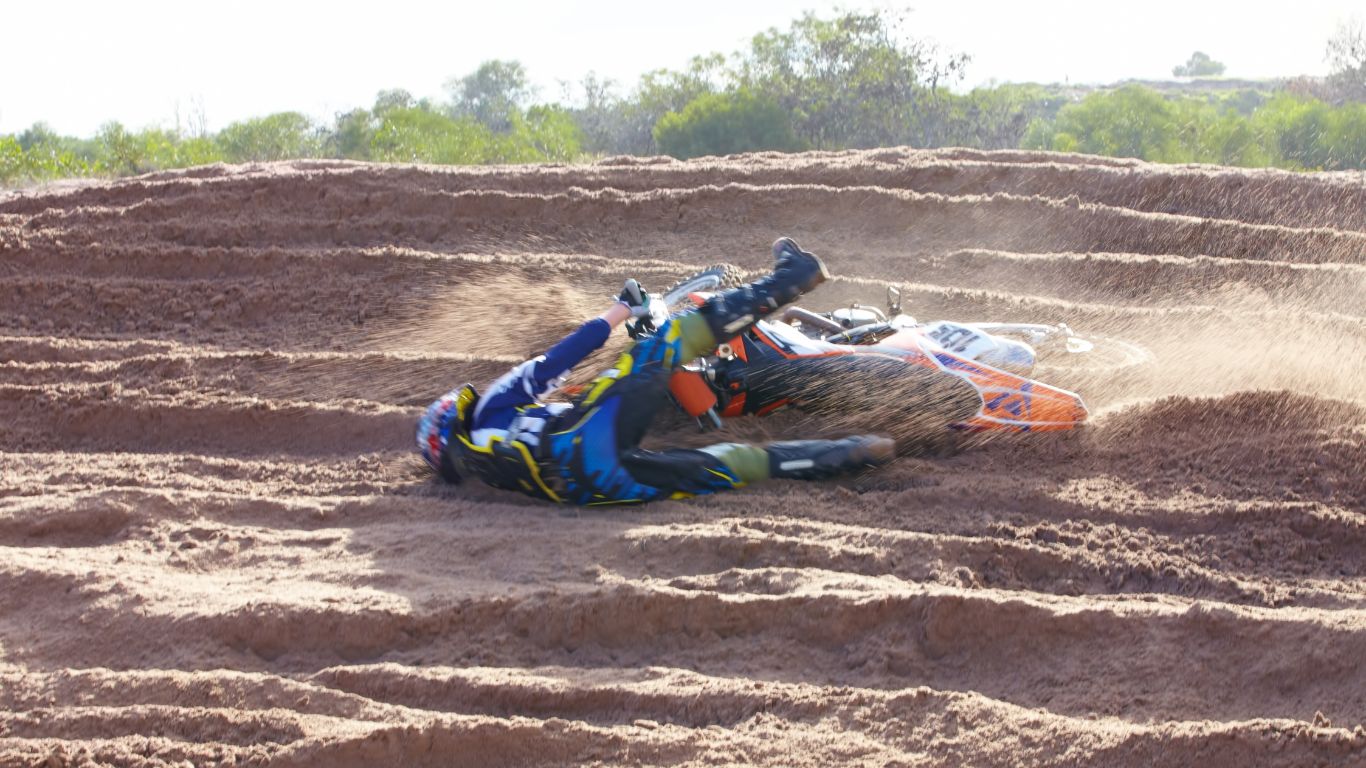Horse racing involves inherent risks and controversial ethical practices, raising concerns about animal welfare. Horse racing has consistently sparked debates on its ethical implications as it raises concerns about the treatment and well-being of the animals involved.
While some argue that it showcases the beauty and athleticism of horses, others highlight the potential for injuries, mistreatment, and even fatalities. The use of whips, the demanding training regimens, and the risk of health issues for the horses are among the main points of contention.
This contr oversial nature has prompted ongoing discussions and calls for increased regulations and oversight within the industry. Despite its popularity, the ethical considerations surrounding horse racing continue to be a point of significant contention.

Credit: henriettaharding.com
Controversial Aspects Of Horse Racing
Horse racing has long been a sport of controversy due to various aspects that raise concerns about the well-being of the animals involved. Understanding the contentious elements of horse racing is crucial in order to make informed decisions about its ethicality. Let’s delve into the controversial aspects of horse racing.
Injuries And Deaths
Horse racing is marred by the high risk of injuries and fatalities suffered by the equine athletes. The intense physical demands and competitive nature of the races put immense strain on the horses, leading to frequent injuries and, in tragic cases, fatal accidents.
Drug Use And Doping
Drug use and doping have long been a dark cloud over the horse racing industry. The administration of performance-enhancing drugs poses serious risks to the horses’ health and welfare, while also creating an unfair advantage in competition. The integrity of the sport is undermined by such unethical practices.
Overbreeding And Horse Retirement
The overbreeding of racehorses has raised concerns about the fate of retired horses. Many retired racehorses face uncertain futures, often ending up in neglectful or abusive situations. The lack of a comprehensive retirement plan for these athletes is a pressing issue that demands attention and resolution.

Credit: dream-horse.co
Ethical Considerations
When examining the ethical considerations surrounding horse racing, it is essential to delve into various aspects of the sport that raise questions about the welfare of the animals involved and the responsibility of all industry stakeholders.
Inherent Risks And Freedom Of Choice
Horse racing carries inherent risks for the animals involved, ranging from the physical demands of the sport to the potential for injuries. While some argue that these risks are part of the freedom of choice for the horses and their owners, others question whether the animals truly have autonomy in this context.
Animal Welfare And Exploitation
The concept of animal welfare is at the forefront of discussions about the ethicality of horse racing. Concerns about the potential exploitation of horses for the sake of entertainment and profit have sparked debates about the industry’s treatment of these animals.
Responsibility Of Industry Stakeholders
All stakeholders within the horse racing industry, including breeders, trainers, owners, regulators, and organizers, bear the responsibility of ensuring the well-being and ethical treatment of the horses. It is imperative for these entities to prioritize the ethical considerations related to horse racing and make conscientious decisions that prioritize the welfare of the animals.
Regulation And Reform
When discussing the contentious topic of horse racing and its potential cruelty, it is crucial to examine the existing regulations in place as well as the calls for stricter regulations and proposed reforms. This is an ongoing dialogue aimed at ensuring the welfare of the horses participating in these events.
Existing Regulations
The world of horse racing is not devoid of regulations and guidelines intended to safeguard the welfare of racehorses. These existing regulations are the foundation upon which the industry operates and seeks to maintain a balance between the excitement of the sport and the wellbeing of the horses.
Under these existing regulations, horse racing authorities enforce strict rules regarding various aspects, such as horse breeding, training practices, medication use, and track conditions. By setting standards for these areas, the aim is to minimize risks and protect the health and safety of the horses.
Furthermore, there are regulations in place to ensure fair competition. These include measures to prevent doping and illegal activities that can compromise the integrity of the sport. Horse racing authorities work diligently to enforce these regulations and maintain a level playing field for all participants.
Calls For Stricter Regulations
Despite the presence of existing regulations, there is an ongoing debate surrounding the adequacy of these rules and whether they effectively address the concerns associated with horse racing. Animal welfare organizations and activists argue for stricter regulations to further safeguard the horses and reduce any potential cruelty.
The calls for stricter regulations often focus on areas that are deemed to cause the most harm to the horses, such as the use of whips during races, the frequency of races, and the conditions in which the horses are housed and transported. Advocates for reform argue that by implementing more stringent measures in these areas, the risks and potential cruelty within the industry can be significantly reduced.
Reform Proposals
Various proposals for reform have emerged from the ongoing discussions surrounding horse racing and its potential cruelty. These proposals aim to address the concerns raised by critics and strengthen the existing regulations to better protect the welfare of the horses involved.
One key reform proposal is to improve transparency within the industry. This involves making racehorse injury and fatality data publicly accessible, enabling greater scrutiny and accountability. By doing so, stakeholders can identify patterns and trends that may require further regulation or intervention.
Another area of focus for reform is the development and implementation of stricter regulations on medication use. Critics argue that certain drugs used in horse racing can have detrimental effects on the health and wellbeing of the animals. Stricter controls and more comprehensive testing protocols are being proposed to ensure the horses are not exposed to unnecessary risks.
Additionally, reforms are being suggested to address concerns over the breeding and retirement practices within the industry. By promoting responsible breeding and providing better retirement plans for racehorses, it is believed that the overall welfare of the horses can be improved.
In conclusion, as discussions surrounding the potential cruelty of horse racing continue, it is clear that regulation and reform are key aspects. Existing regulations provide a framework for the industry, but calls for stricter regulations and reform proposals seek to address the concerns raised by critics and ensure the welfare of racehorses is prioritized. By implementing these changes, the aim is to strike a better balance between the love for the sport and the wellbeing of the horses involved.
The Role Of Technology
When discussing the controversial topic of whether horse racing is cruel, it is important to consider the significant role that technology plays in promoting the welfare and safety of racehorses. Advancements in equine medicine, improvements in track surfaces, and the implementation of meticulous monitoring and safety measures have all resulted in a more humane and safer environment for these magnificent animals.
Advancements In Equine Medicine
One of the key ways technology has made a positive impact on horse racing is through advancements in equine medicine. Veterinary science has progressed leaps and bounds, allowing for better diagnosis, treatment, and prevention of injuries and illnesses that can befall racehorses. Today, cutting-edge diagnostic tools, such as ultrasound machines and magnetic resonance imaging (MRI) scanners, enable veterinarians to quickly and accurately detect even the most subtle signs of physical distress in these majestic creatures.
Equine medicine has also seen advancements in the field of orthopedics, with the introduction of minimally invasive surgical procedures that result in faster recovery times for injured horses. This not only improves the animals’ welfare but also increases their chances of returning to racing at full capacity. Furthermore, ongoing research and development in pharmacology have resulted in the creation of new medications that aid in pain management and promote healing, ensuring that racehorses receive the best possible care.
Improvements In Track Surfaces
The surface that racehorses run on plays a crucial role in their overall safety and well-being. Thanks to technological advancements, track surfaces have undergone significant improvements in recent years. The traditional hard, unforgiving surfaces have been replaced by more forgiving and shock-absorbent materials, such as synthetic tracks.
These synthetic surfaces, made of rubber, sand, and fibers, offer several advantages over their conventional counterparts. They provide enhanced traction, reducing the risk of horses slipping and suffering catastrophic injuries. Additionally, these tracks have the ability to better absorb impact forces, diminishing stress on the horses’ joints and reducing the likelihood of musculoskeletal issues. With better track surfaces, horse racing has become less hazardous, minimizing the potential for accidents and injuries.
Monitoring And Safety Measures
Another area where technology has greatly contributed to horse racing’s safety is through meticulous monitoring and the implementation of comprehensive safety measures. State-of-the-art surveillance systems now closely monitor races, ensuring that all rules and regulations are followed and that any misconduct or unsafe practices can be swiftly addressed.
Moreover, advances in motion-capture technology and biometric sensors have enabled trainers and veterinarians to closely monitor the horses’ physical condition, heart rate, and stride patterns during training and competition. This data allows them to identify signs of fatigue or distress, allowing for immediate intervention and preventing further harm.
Furthermore, stringent drug testing protocols have been implemented to ensure fair play and protect the well-being of the animals. Equipped with sophisticated testing methods, laboratories can detect the presence of prohibited substances and take appropriate actions, such as disqualifying horses or imposing penalties on those responsible.
Overall, the role of technology in horse racing cannot be understated. Through advancements in equine medicine, improvements in track surfaces, and the implementation of comprehensive monitoring and safety measures, the sport has made significant strides in becoming more humane and secure for its participants. While the debate surrounding the ethics of horse racing may continue, it is undeniable that technology has played a crucial role in promoting the welfare of these magnificent animals.
Alternatives To Traditional Horse Racing
While traditional horse racing has long been a popular sport, concerns have been raised about the welfare of the horses involved. Critics argue that the intensive training, high risk of injury, and uncertain fate of retired racehorses make the sport inherently cruel. As a result, there has been a growing interest in exploring alternatives that provide entertainment without compromising the well-being of these majestic animals. In this blog post, we will examine three potential alternatives to traditional horse racing: virtual horse racing, robot jockeys, and non-competitive equine activities.
Virtual Horse Racing
Virtual horse racing is an innovative solution that combines the excitement of watching a race with the welfare of real horses. In this digital realm, computer-generated horses compete against each other, offering a realistic simulation of the sport. Instead of live animals, virtual races use sophisticated algorithms to determine the outcome, eliminating the physical strain and potential harm to actual horses.
Virtual horse racing also offers several benefits over traditional racing. First and foremost, it reduces the risk of injury or even death to both horses and jockeys. By removing real animals from the equation, the inherent danger associated with the sport is virtually eliminated. Furthermore, virtual horse racing provides an opportunity for spectators to engage in the excitement of the races without contributing to the potential mistreatment of animals. With just a few clicks, racing enthusiasts can access a virtual platform and enjoy a thrilling race with peace of mind.
Robot Jockeys
Robot jockeys have emerged as another viable alternative to traditional horse racing. These technological marvels have the capability to replace human jockeys and alleviate concerns surrounding the treatment of riders and the impact of their weight on horses. Equipped with an array of sensors and sophisticated programming, these robots can effectively control and steer the horses during the race.
Moreover, robot jockeys can provide a consistent riding experience, eliminating the human factor that may lead to discrepancies in performance. By removing variation in weight, technique, and handling, the integrity of the race is preserved, ensuring a fair and exciting competition. Additionally, these robots can be programmed to prioritize the safety and well-being of the horse, minimizing the risk of injury and improving overall welfare.
Non-competitive Equine Activities
Non-competitive equine activities offer an alternative to horse racing that focuses on the well-being and enjoyment of the animals rather than the pursuit of victory. These activities encompass a wide range of equestrian disciplines, such as dressage, show jumping, and trail riding. Unlike traditional racing, these pursuits emphasize the bond between rider and horse, promoting a collaborative and mutually beneficial relationship.
Non-competitive equine activities provide various advantages over racing. Firstly, they allow horses to engage in activities that cater to their natural instincts and abilities without subjecting them to the intense pressures of racing. Secondly, these activities provide opportunities for horses to receive proper care, training, and exercise, contributing to their overall well-being and happiness. Lastly, they enable horse enthusiasts to appreciate the beauty and grace of these animals in a more relaxed and humane setting.

Credit: www.thedailybeast.com
Frequently Asked Questions
Is Horse Racing Abusive To Horses?
Horse racing has been a topic of debate for its potential abusive nature. Critics argue that the intense training, drug use, and risks involved can harm the horses. However, proponents claim that proper regulations and care ensure the horses’ well-being.
Overall, the question of horse racing’s inherent abuse remains a subject of ongoing discussion.
Are Horses In Pain When Racing?
Yes, horses can experience pain when racing due to the physical demands and potential injuries. It’s essential to ensure proper care and management to minimize any discomfort during racing events.
Do Horses Enjoy Racing?
Yes, horses enjoy racing. They are competitive animals who love the thrill of running. Their natural instincts drive them to perform and excel in races. Horse racing allows them to showcase their speed and agility, providing both physical and mental stimulation.
Are Horses Happy Racing?
Horses may not find happiness in racing due to the physical stress and potential injuries involved.
Conclusion
Summing up, the debate surrounding the ethicality of horse racing continues to divide opinions. While enthusiasts argue the sport provides entertainment and a platform for noble breed preservation, skeptics raise concerns about animal welfare and the potential for cruelty. It is crucial for stakeholders to address these concerns through stricter regulations and better monitoring to ensure the safety and well-being of the horses involved.
Ultimately, the future of horse racing lies in finding a balance between tradition and the welfare of these majestic creatures.









